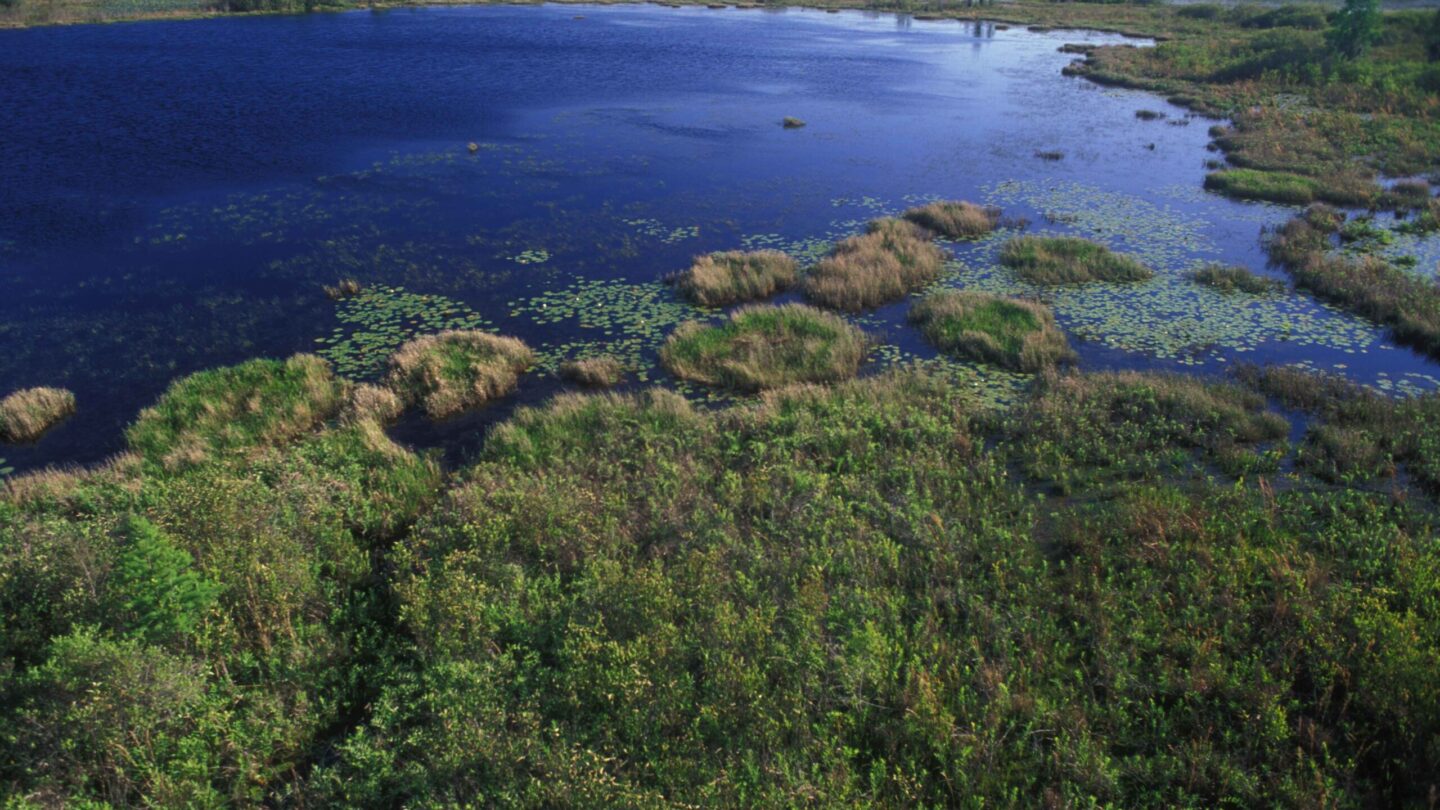Warnock And Ossoff Weigh In On Mine Proposal Near Okefenokee

Wikimedia Commons
Updated at 5:35 p.m. Thursday
Georgia’s two U.S. senators are asking the federal government to get involved in reviewing a controversial proposed mine near the Okefenokee Swamp.
Sens. Raphael Warnock and Jon Ossoff sent a letter this week to Martha Williams, deputy director of the U.S. Fish and Wildlife Service, who is a Biden administration appointee. Sens. Tom Carper, D-Del., and Sheldon Whitehouse, D-R.I., also signed the letter.
The senators are asking the federal agency to help the state of Georgia on the permitting process for a proposed titanium dioxide mine located a few miles from the Okefenokee National Wildlife Refuge.
Environmentalists are concerned the mine, being developed by a company called Twin Pines Minerals, could affect the water levels in the Okefenokee Swamp. They’re also concerned that though the proposed mine has already been scaled down, the project could eventually expand closer to the swamp and open the door for other similar mining operations in the area.
Because of a Trump administration change to the Clean Water Act, federal agencies don’t have a role in assessing the environmental effects of the mine. That policy change “places an onerous burden on the State of Georgia and threatens to bypass a typically robust review and stakeholder engagement process,” the senators wrote.
So they’re asking Fish and Wildlife to help, as the Georgia Environmental Protection Division [EPD] conducts its own review.
The Fish and Wildlife Service had already begun some analysis of the mining proposal before the federal government stepped back from the approval process.
“Considering your agency’s long history of supporting Okefenokee Refuge, its scientific expertise in measuring ecological and hydrologic effects, and existing analyses about this mining proposal, we urge FWS to proactively support and engage with EPD in its review of this project and the cumulative impacts of long-term mining near the refuge,” the senators wrote. “We ask FWS to specifically analyze whether the applicant is able to prove that operations will not harm the refuge.”
Earlier this month, Georgia EPD sent its own list of questions to the company planning to mine. The state also plans to hold a public hearing on the proposal and collect public comments via email.
“We expect FWS and possibly other agencies to participate in the public notice and comment period,” EPD spokesman Kevin Chambers wrote in an email.
A spokesman for U.S. Fish and Wildlife said that even though the agency doesn’t have a formal role with this project, it would “provide expertise where appropriate to support the state-level permitting process.”
The federal agency hasn’t reviewed the scaled-down version of the project being proposed, he said, but it has shared information with Georgia agencies from its earlier analysis.
“The Service’s previous concerns were focused on the likelihood of direct and immediate impacts to the Okefenokee Basin, and Okefenokee National Wildlife Refuge, as well as, the longer-lasting, indirect impacts to natural and physical factors that influence the functioning of the associated ecosystem,” he wrote. “Principally, the concerns were focused on possible impacts to federally protected and at-risk species and associated habitats under the Endangered Species Act, but more broadly, alteration of the ecosystem such as its hydrology.”
Steve Ingle, the president of Twin Pines, said in an email that his company will defer to EPD to consider all the information it receives.
“We want EPD to see ALL [sic] the evidence because it supports our environmental objectives,” he wrote. “The property on which our temporary, surface mining will take place will be restored with native vegetation and habitats, unlike the ways in which it was used for more than a century as a pulpwood forest. We will continue to follow the EPD’s lead and look forward to the science proving the efficacy of our project.”
The state agency is posting permits and documents related to the proposal on its website, where it will also add public input information once it’s scheduled.
Gov. Brian Kemp has not weighed in on either side, saying last week he’d “let the process play out.”
There was a much larger proposal to mine near the Okefenokee in the 1990s. In the end, that plan was scrapped after an outcry from environmental groups and the Clinton administration stepped in to stop it.








